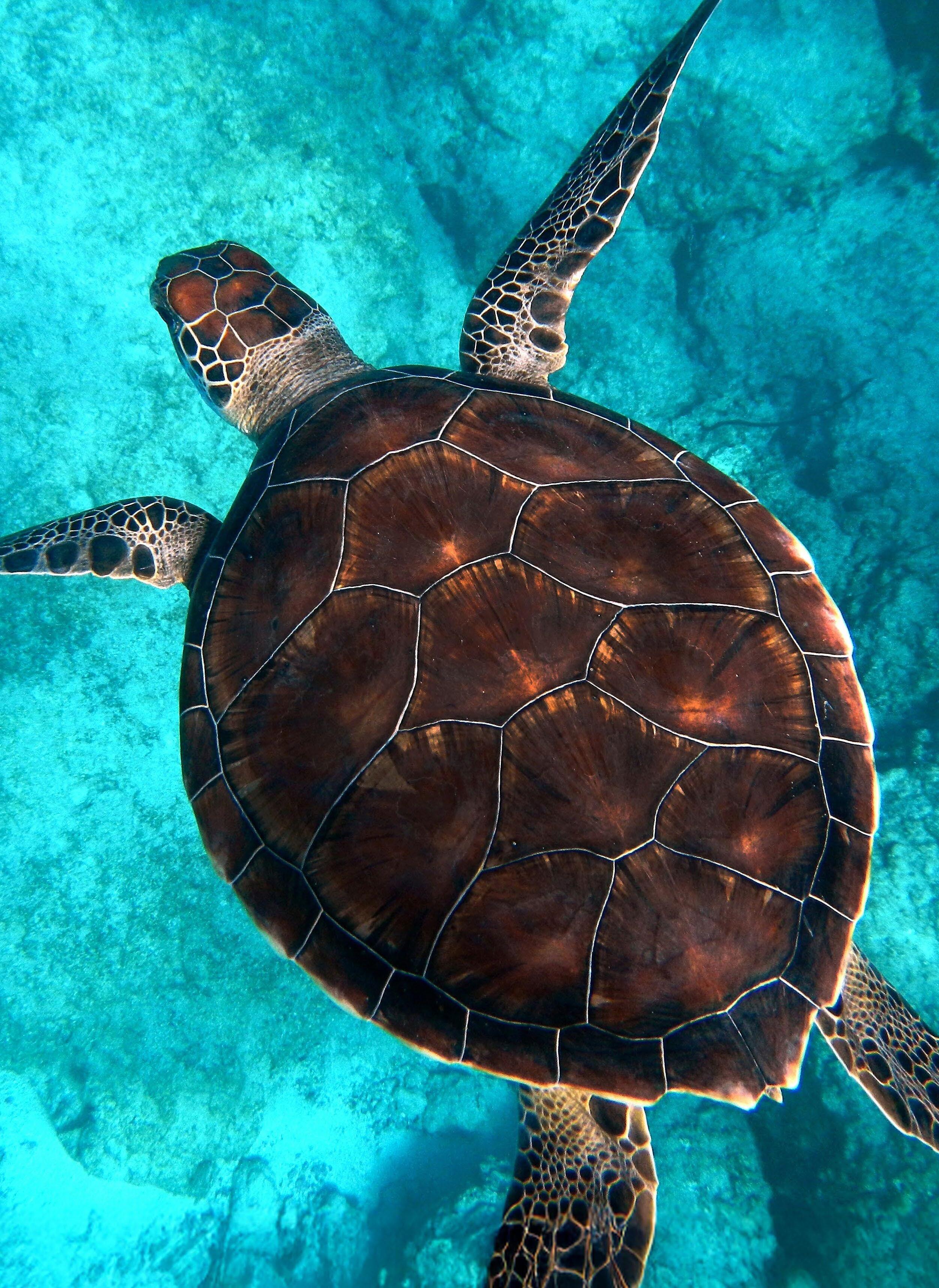

PLANET PEOPLE AND
We’re dedicated to integrating sustainability and ethics across all aspects of our trips. Ensuring a better future, for people and planet.
CLIMATE ACTION PLAN
In 2021 we became a launch partner for the Glasgow Declaration for climate action in tourism. Our climate action plan outlines the steps we’re taking to reduce our impact on the climate crisis.
MEASURE REDUCE

We measure our full carbon footprint by calculating the emissions of each of our trip itineraries and flights, and by recording the emissions generated by our offices and staff teams.
1. 2.
We’ve set ourselves the goal of reducing the emissions generated by our trips, staff and offices by 50% by 2028, with 2019 as our baseline year. In doing so we will exceed guidance set by the Intergovernmental Panel on Climate Change (IPCC) by two years.
To achieve this, we are:
• Reducing the amount of travel our staff undertake by running our pre-departure programme digitally and utilising online collaboration to work effectively as a global team
• Swapping remote training expeditions for training days at client schools to reduce the emissions generated through transport and accommodation at these events
• Conducting annual itinerary reviews to reduce trip emissions by transitioning to more efficient route, transportation, and accommodation options
When it comes to the emissions generated by our customer flights, we’re aware that the aviation industry has targets to reduce these, aligned to developments in alternative, more sustainable fuel sources. Whilst we eagerly await progress in that industry, we’re taking steps within our control to reduce the emissions generated by these flights, this includes:
• Identifying flight free options for itineraries from the UK to Europe
• Offering short-haul, domestic itineraries in Australia and New Zealand for schools located in this region
• Including emissions as a key point for review, alongside cost, timing, and availability, when selecting the most viable route option for each team
As technology advances and availability expands, we will begin to prioritise bookings with airlines which are using sustainable aviation fuels

3.
From 2022 we will not provide any single-use plastics on our trips* and will continue to implement initiatives to reduce waste
• Maintaining our Travellers Against Plastic pledge, we have removed all single-use plastics from the equipment provided to our teams* and have removed single-use plastic water bottle provision from all of our activities

• We provide travellers with plastic-free kit lists to promote sustainable packing choices
• We have adopted rent and reuse policies for our tents to reduce the number of new pieces of equipment utilised by 60% from 2019 to 2022
• We have opened a merchandise shop to allow customers to purchase sustainably produced branded clothing, which minimises negative impacts resulting from production on the environment, and reduces waste from unwanted handout merchandise that was previously given to participants
* Unless required for hygiene, medical or safety purposes
REGENERATE & MITIGATE
• We fund reforestation initiatives to remove greenhouses gases from the atmosphere, mitigating the negative impact of our trips on the planet
• We collaborate with 40 conservation organisations worldwide to support reforestation and environmental regeneration programmes
• Alongside our sister-brands within the Travelopia group, we support coastal nature regeneration projects in partnership with the Blue Marine Foundation
EDUCATE & COLLABORATE
FINANCE & REPORT
• All participants on our trips have access to pre-departure learning on climate change and other topics relating to global citizenship including how to travel sustainably
• We will continue to share our progress and initiatives with our network of partners to raise awareness and provide support to others embarking on their own sustainability journeys
We will report on our emissions annually, transparently sharing our footprint, the results of our reduction strategies, and the quantity of emissions removed through offsetting
• We will continue to direct the required resources to fulfil these aims
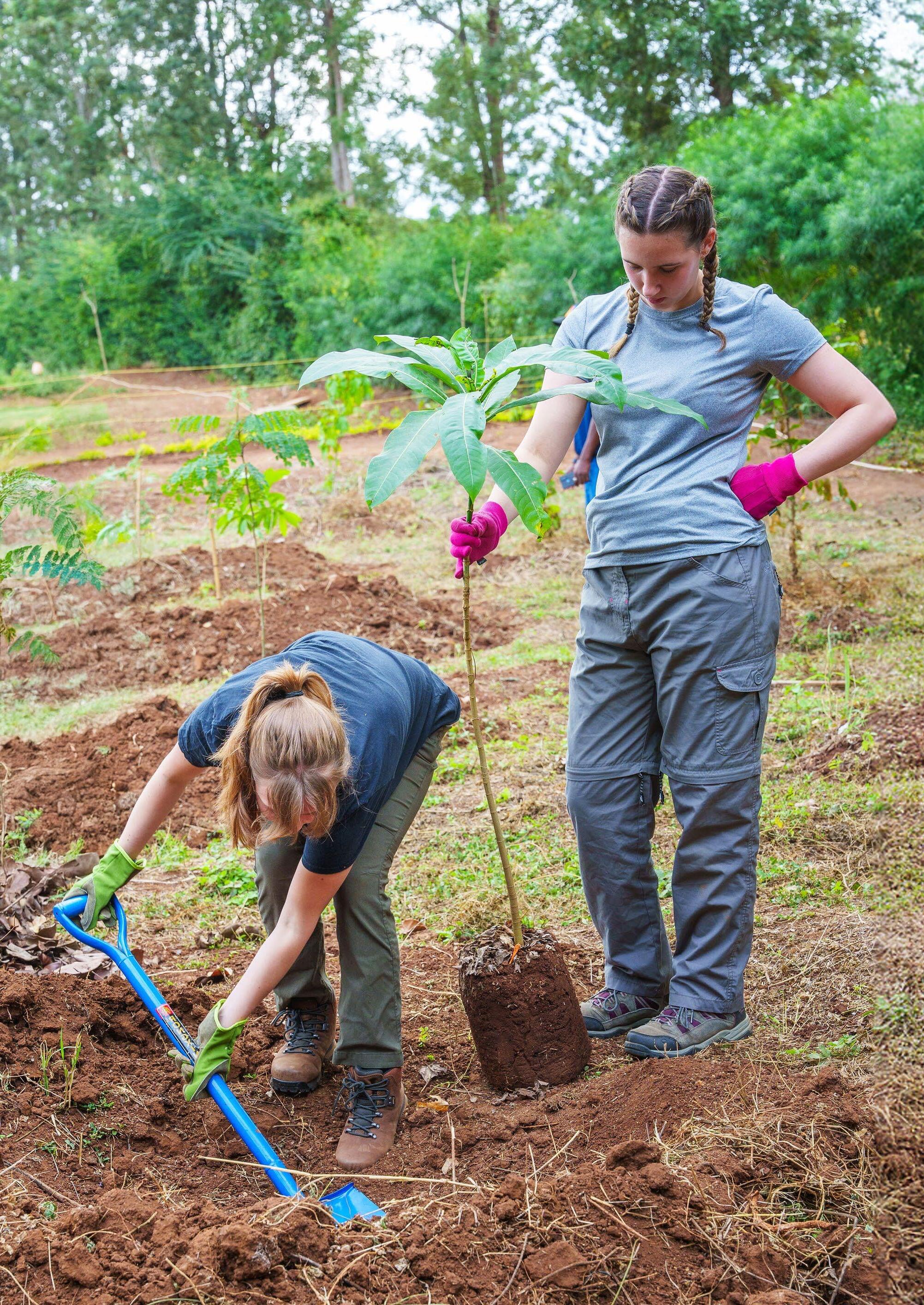
HOW WE MEASURE OUR CARBON FOOTPRINT
We measure all of the emissions generated by our business, including those from our flights, out trips and our offices and staff.
Here is how we measure each area:
FLIGHTS
TRIPS
• We use emissions conversion factors from DEFRA (UK Government) including radiative forcing (the additional impact which results from the emissions taking place at high altitude), to compute the emissions for each of our flight routings
• We use conversion factors to measure the emissions resulting from the operation of our trips. Where data is not available, we have created bespoke methodology to estimate emissions for certain activities based on factors and information available to us. This accounts for:
Transport - calculating emissions based on the distance travelled and type of vehicle used for all journeys including optional activities, cultural sightseeing and extras such as trek support
Accommodation - using tools to calculate the emissions of hard accommodation based on the standard and style, number of rooms and location. For camping, we include the use of shared facilities (where available) and even make an allowance for campfires
Meals - where meals are expected to be taken in a restaurant, we account for additional emissions generated by the operation of the facility
Training days - we account for the distance travelled by our Leader to the training day and an overnight stay if this is required
Guides - where we have the support of guides or porters on our trips we include allowances for their accommodation and travel too
OFFICES AND STAFF
As with our trips we use conversion factors to measure our footprint including:
Energy and water consumption at our offices and warehouses
• Staff travel including mileage, aviation, public transport and overnight stays
• Waste to landfill and recycling
We operate a hybrid working office and have some fully remote staff members. We include an allowance for the energy consumption of staff members working at home.

OUR NATURE-BASED APPROACH TO CLIMATE ACTION
Up until 2022 we opted to offset our emissions through gold-standard certified programmes. Moving forwards, we’re shifting the focus of our investments to nature-based solutions. Since 2023, we have been using reforestation and land regeneration as our primary tool to remove greenhouse gases from the atmosphere. We chose to make this change, partly, due to the ongoing controversy around offsets and questions regarding their effectiveness, but primarily, due to our passion for protecting and regenerating the natural environments that we love to explore on our trips.
WHY REFORESTATION AND REGENERATION?
Trees play a vital role in protecting our planet from the impacts of climate change, acting as one of the most effective natural tools for removing harmful greenhouse gases from the atmosphere. By supporting reforestation and ecosystem regeneration, we’re not only tackling carbon emissions but also helping to restore degraded landscapes, revive biodiversity, and strengthen climate resilience. These growing forests provide habitats for wildlife, food and income for local communities, and long-term environmental benefits. These programmes reflect our core values—protecting and restoring the natural environments we explore, so future generations can continue to experience and learn from them.
HOW WE IMPLEMENT OUR NATURE-BASED SOLUTIONS
In 2023 and 2024 we worked with Eden: People + Planet to fund reforestation and regeneration projects around the world, including in several of the destinations we travel to such as Madagascar, Mozambique and Nepal
• A large portion of our funding goes towards planting mangroves which remove emissions 2-4x faster than other forests whilst also protecting the coastline from the degradation that climate change can cause
• The regeneration projects are carefully managed and monitored to ensure efforts are protected long into the future. When preparing our calculations, we assume that the trees we plant will sequester carbon throughout a 20-year period. In reality, most of these trees will continue to grow for much longer, creating lasting positive impacts for our planet well into the future.
Reforestation and ecosystem regeneration projects are carefully planned alongside local communities to ensure maximum effectiveness
• Local communities are engaged to carry out the ecosystem regeneration programmes, creating income generation and employment opportunities for them
• Whenever possible, students take part in hands-on reforestation activities during their trip - planting native trees, assisting with land restoration, or supporting local nursery projects. These experiences offer valuable first-hand insight into climate action, while directly contributing to our wider commitment to reducing emissions and restoring ecosystems.
MANGROVES REMOVE 2-4X MORE CARBON THAN NORMAL TREES!
ETHICAL COMMUNITY INITIATIVES
We’re devoted to leading the way when it comes to our ethical approach to community initiatives, a key part of a World Challenge trip where students get to engage with an organisation driving sustainable, long-term change aligned with the UN SDGs. Through these experiences we aim to inspire tomorrow’s leaders to engage with key global challenges that affect people and planet.
HOW WE DO THIS
• Experienced local partners facilitate all the initiatives. We’re a travel company, not development experts, so we handover to the specialists for this part of the trip
• Partner-driven initiatives respect local priorities and ensure that long-term plans are well managed by those who understand them best
• Audits are completed by all our partners to ensure ethical standards are upheld
• A balanced approach means that travellers can learn, and partake of fun experiences, whilst accelerating progress towards the aims of the initiative, with both outcomes considered equally important
• Appropriately skilled tasks are selected, and we don’t participate in activities we’re not qualified for
• Time-conscious schedules include a range of activities, learning and engagement that are suitably aligned to the duration of the visit
• Economic benefit is created for communities by reimbursing fairly for services supplied and employing skilled local tradespeople to complete professional tasks where required
• Non-disruptive schedules respect communities’ routines. If activities occur at a school, interaction with students will only take place outside of lesson time to ensure learning continues as planned
EDUCATING RESPONSIBLE TRAVELLERS
We equip our travellers with educational resources about global issues, empowering them to make responsible decisions about living and travelling sustainably.
We pioneered our first Responsible Travel Workshops, reaching over 5000 participants by 2020
Our Global Citizenship modules launched to provide students with interactive learning about important issues such as travelling responsibly and understanding climate change prior to their trip departure
We launched an updated Leader module on Global Citizenship and Sustainability, along with a revised Training Day schedule, to strengthen pre-departure learning and engagement
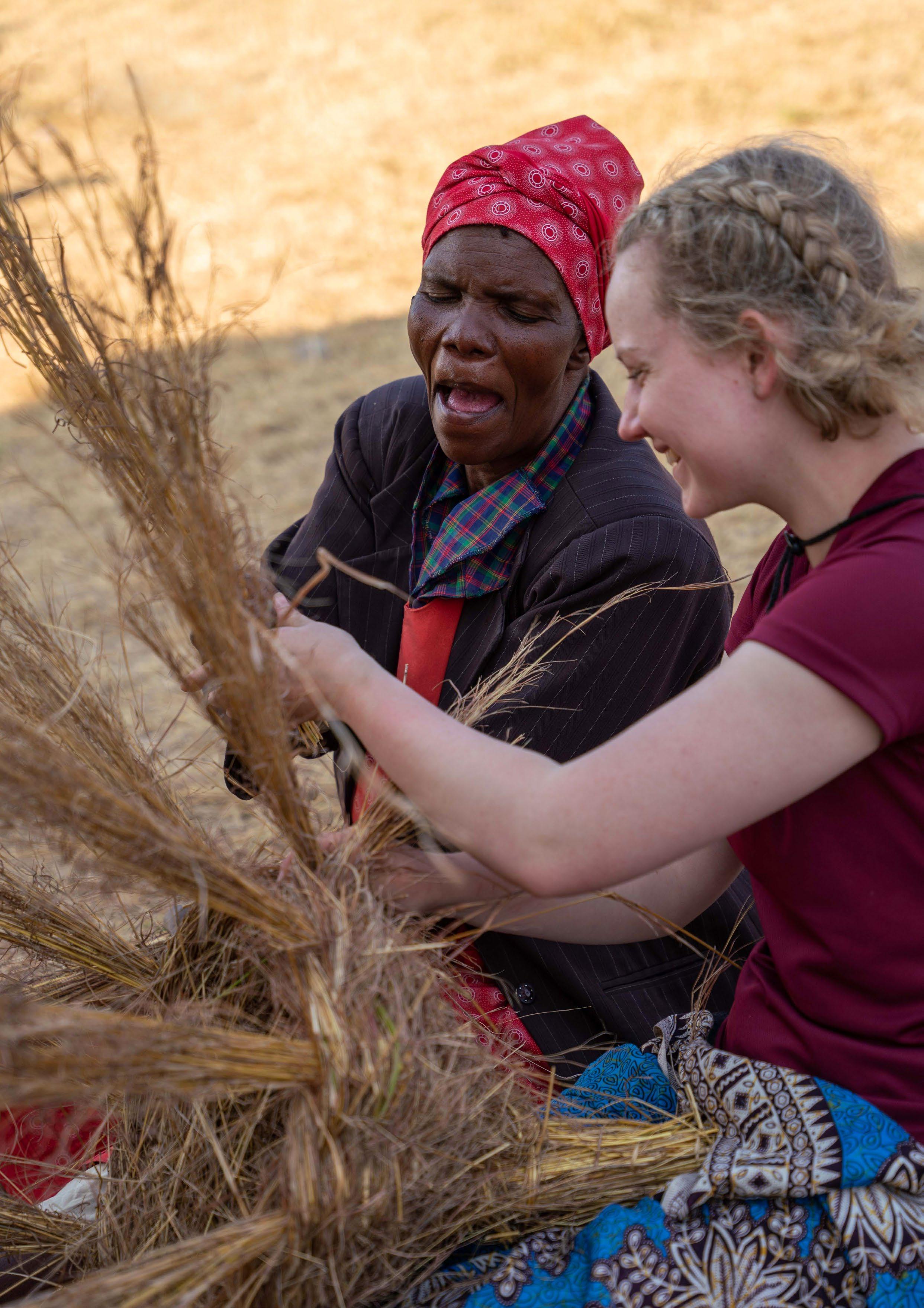
CHILD WELFARE
As some of the most vulnerable members of society, children are disproportionately impacted by human rights violations around the world. We’re committed to promoting children’s rights, most notably their right to be protected from harm, abuse and exploitation, as outlined in the UN Convention on the Rights of the Child.
We believe in the potential of tourism to empower local communities through employment and economic opportunities, as well as by building connection. Exposure to tourism can, however, increase the risk of harm for children and their vulnerability to human rights violations.
WHAT WE DO TO PROTECT CHILDREN FROM THESE RISKS:
• We have a comprehensive Safeguarding Policy and require all staff, including our Ground Teams to follow a code of conduct for interactions with our young travellers, and the young people they meet on the road
• We ask our travellers to observe the same code when they meet children in their destination communities
• We don’t publish photos of children in our marketing materials without permission from their parents or guardians
• We don’t condone child labour and require the same legal compliance from our supply chain
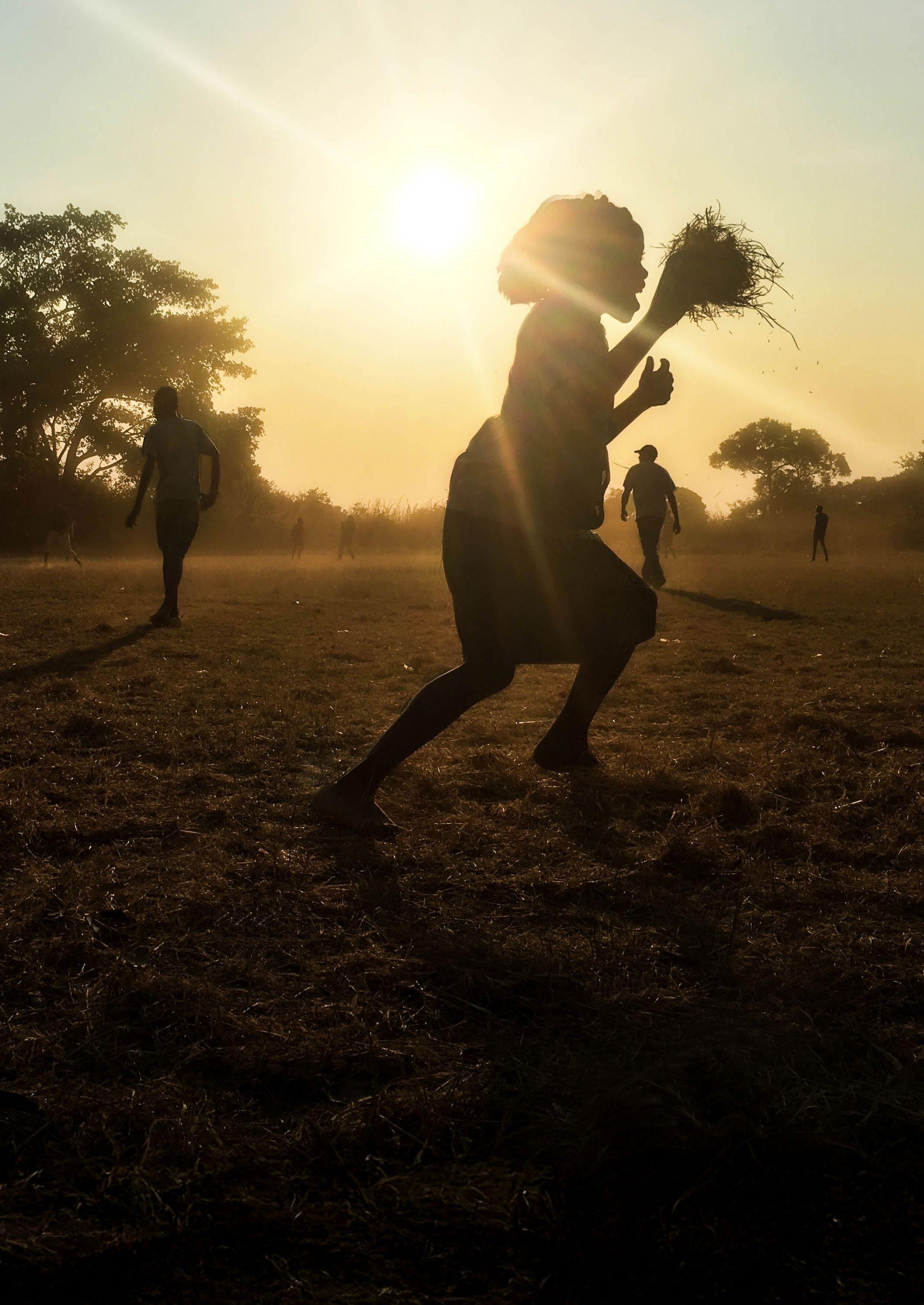
ON OUR TRIPS..
• We recognise that institutional care can be harmful for children, and that tourists have no place in that setting, so we don’t visit or support orphanages
• We don’t visit schools without a purpose beyond ‘sightseeing’ and ensure than any activities at local schools don’t take local students away from their learning
• We advise travellers not to give to child beggars or buy souvenirs from children, acknowledging that this can perpetuate a cycle of demand, negatively impacting the education and welfare of those children
• We ask travellers to get permission before taking photographs of local people, especially children, and to make sure they check with the subject and, for young people, their parents/guardians, if they plan to post the photo on social media
• We aim to foster respectful interactions through our guiding principle: “If you wouldn’t do it at home, don’t do it anywhere.” We refrain from hugging, picking up, or holding local children and only engage in activities that promote skill-building, education, and meaningful

ANIMAL WELFARE
Visiting an animal attraction on a trip is more than just a fun, unique experience, it can also play a role in educating our students about the natural world and contribute to conservation initiatives. At the same time, animals in captivity are extremely vulnerable to exploitation if such experiences are not well managed.
We won’t offer activities on our trips if we feel there is a risk that they might negatively impact the welfare of the animals involved. As such, we’re committed to assessing wildlife attractions to ensure that animal welfare is always a priority.
How we assess experiences that interact with animals
WILDLIFE IN CAPTIVITY
We only visit attractions where animals live in captivity if:
• The wildlife is captive for purposes of rehabilitation or conservation, not just to create the attraction
• The living conditions are well maintained, efforts are made to mimic the animals’ natural habitat, and animals have privacy from visitors
• Wildlife are not required to perform or elicit unnatural behaviours for visitors’ enjoyment
We don’t visit any attractions where wildlife are required to engage in physical contact with visitors
VIEWING ANIMALS IN THE WILD
• We require providers to monitor group sizes and regulate distances between viewers and wildlife – animals should never be cornered or trapped
• A trained guide or ranger must always be present to ensure safety and standards are maintained
• Visitors should not physically interact with wild animals in any way
• Animal welfare is always prioritised over visitor experience
FOR WORKING ANIMALS
We require providers to ensure
e.g mules on treks
- Animals only work within their physical capabilities, never being over-burdened
- Time spent tethered, whilst not working, is limited, and adequate food, water, shelter, and shade is always available
• Young, old, pregnant, ill, or injured animals should not be used for working purposes
• Equipment should fit appropriately and not cause discomfort or pain


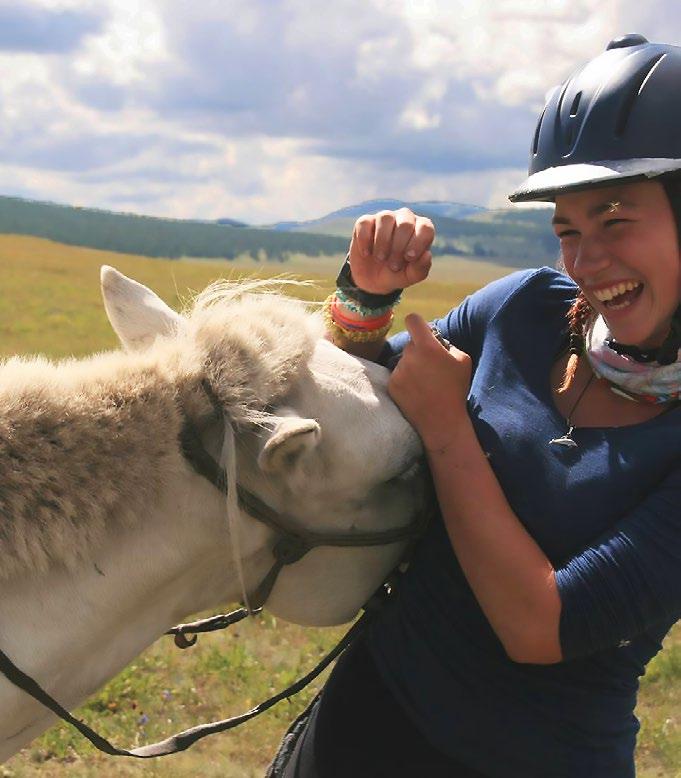
AND
EQUALITY, DIVERSITY INCLUSION
Travel offers opportunities for human connection on a scale that is difficult to achieve through any other medium. As we explore, we engage with those we encounter on the road, building awareness, empathy and understanding for different social and cultural environments. Our trips specifically aim to enhance travellers’ understanding of their place in the world, challenging them to step outside of their comfort zone and grow as individuals.
We believe that these opportunities should be available to anyone, regardless of their background, and that those who participate in our trips should be able to enjoy an experience free from discrimination against any personal characteristics.
Our commitments to promoting equality, diversity, and inclusion for our travellers, apply to all the protected characteristics outlined by The Equality Act 2010. These include age, sex, disability, race, gender reassignment, family status, religious beliefs, and sexual orientation. We do not condone discrimination against any of these characteristics under any circumstances and are committed to acting on any reports to the contrary.
WHAT WE’RE DOING TO BUILD ON THIS COMMITMENT:
• All our staff and Ground Teams are trained on our Equality, Diversity and Inclusion policy and the importance of ensuring the expected standards of compliance throughout our supply chain
• Any individual with special requirements who wishes to travel with us will be provided with tailored support from our team, who will make all possible adaptations to enable their participation
• Implementing processes to monitor the diversity of our travellers, and using this data to identify barriers to inclusion, from which we will develop an action plan to outline our next steps in advancing this position

